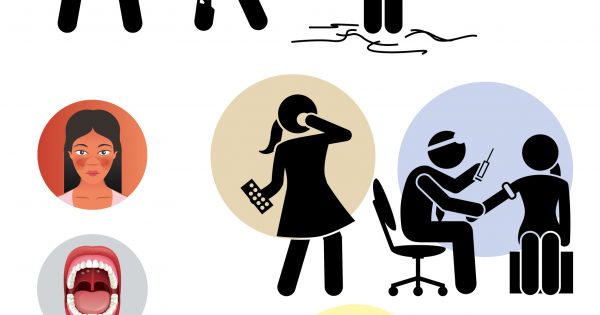Social media has become an inseparable part of our children’s lives. Today’s ever-evolving digital world with various benefits and challenges requires parents to adjust their approach to parenting. Constant exposure of our children to social media and smart gadgets at a young age has numerous possible long-term consequences that many parents are unaware of. It is therefore vital for parents to understand the complex interactions that exist between social media, parenting, and children.
How social media has influenced children
A UNICEF report cited a 2017 survey which revealed that 92% of Malaysian students aged 13-17 years old had a social media account, while a 2018 survey found that 92% of children aged 5-17 years old use the internet. This points to widespread usage of social media and the internet among Malaysian children and adolescents.
According to Datuk Dr Zulkifli Ismail, “Social media is embedded in the lives of almost every kid these days, and it’s easy to see why. Social media platforms have made it easier for children to socialise by providing them with new ways to connect with their friends regardless of where they live. It has developed into a virtual playground for interests, pastimes, and friendships.” The consultant paediatrician further adds, “However, there are also challenges that come with social media. For many children, social media is a digital extension of themselves. So, any negative comments in the digital world such as cyberbullying can have effects on the physical self. Such encounters could lower their self-esteem, distort perceptions of their body image and give rise to a range of mental health issues.”
The grip that social media has on the minds of children extends beyond just receiving hateful comments online. The Positive Parenting chairman explains, “The presence of online personalities, social media influencers, and ever-evolving online trends have a significant role is influencing a child’s social, ethical, intellectual, and even health-related choices. At a young age, children may readily accept what is delivered without the ability ignore or reject negative content and values.” He also adds, “Age restrictions are challenging to enforce, making it easier for young children to access content that is not appropriate for their age. Parents need to more aware and play an active role in supervising online access by young children. They also need to encourage children to talk about online experiences or content which they find confusing or upsetting.” UNICEF reports that when adolescents were asked about what upsets them the most about social media, many revealed distress over the type of content, after encountering violent videos, school fights, accidents, online hoaxes, and misinformation.
Social media and gadgets: the digital nanny
While digital technology has many useful functions, leaving them in the hands of young children without supervision has its drawbacks. Parents often find it a convenient way to keep children entertained while they attend to other errands like cooking meals, cleaning the house, etc. However, Dr Zulkifli warns that when parents increasingly rely on such devices, they unknowingly allow these “digital nannies” to replace their role as parents: “Children who regularly spend long hours viewing screen devices are missing out on priceless parent-child bonding moments. This can lead to families feeling more disconnected than ever before. Prolonged screen time with reduced parent-child interaction also places children at risk of having delays in their conversational and social interaction skills.”
We need to have a balanced view of this issue by looking at online habits of parents as well. Parents are sometimes equally guilty of becoming lost in their devices and spending excessive time on social media. But what’s stopping parents and children from simply putting their phones down? The paediatric cardiologist provides an explanation, “In today’s technological world, online platforms are designed to capture and hold the attention of viewers across all age groups. The lure and appealing qualities of social media make it difficult for both parents and children to disconnect from their screens. Regular disengagement from social media to strike a balance between the digital and real worlds for both adults and children requires conscious effort. Parents should routinely exercise self-discipline in their own social media consumption besides regulating screen time for their children. They should also ensure that adequate time is allocated for other activities, including those which encourage children to be creative, interact with family members and be more physically active.”
The possible long-term effects of social media on children
As parents, we have seen first-hand how social media usage has spread and impacted our children’s lives. It is therefore important for parents to also understand the long-term effects that excessive or improper usage of social media can have on our child’s growth and well-being.
Dr Serena In draws attention to the issues with mental health that come with excessive social media use. She states, “Excessive usage of social media can serve as a contributing factor for the development of many mental health disorders, especially depression, anxiety, and various behavioural addictions. Children who spend too much time online may also run the risk of being exposed to cyberbullying and continual social comparisons with others which can cause them to feel inadequate and uncomfortable with themselves.”
The clinical psychologist further explains how this can result in body image problems. She adds, “Poor nutrition, weight gain, dental caries, and unhealthy eating behaviours have been associated with the excessive use of social media. Constant screen time can cause people to become less conscious of healthy food options and engage in mindless eating. Furthermore, it can worsen concerns with body image, which is particularly seen in young children and adolescents who may experience difficulties with their own self-worth and resort to unhealthy weight-loss methods. This happens when they are perpetually exposed to diet fads and extreme weight-loss regimes that may be promoted by others who are obsessed with maintaining the perfect body. This may lead to the development of eating disorders, which is an issue parents need to be aware of.”
The clinical psychologist also highlights that behavioural issues are among the long-term negative effects of excessive social media use in children. She explains, “Studies have found that excessive consumption of social media in children is associated with a higher likelihood of behavioural issues such as hyperactivity, inattention, sleep disturbances, and conduct issues.”
What can parents do about it?
Recognising that an excessive use of social media may have negative long-term consequences on the health and well-being of children is an important first step. Next, what can parents do to foster good habits in their children’s usage of social media?
According to Dr Mary Joseph Marret, “Parents can help by setting clear boundaries and guiding their children towards self-regulation. Most parents recognise the need to set time limits on the duration and specific times when children are permitted to access social media. However, not all parents realise the importance of rules and guidance in relation to children’s activities online. They need to strike a balance between providing sufficient freedom to socialise with their friends, while also protecting them from the dangers of social media and online predators. For younger children, this may involve limiting chat functions with strangers or setting content limits to ensure that they are exposed to age-appropriate content. When children are older, parents should have open discussions about the need to practise self-regulation, protect personal safety and avoid making rude or disrespectful comments and statements.”
It is also important for parents to practise open communication and have ongoing talks with their children about social media. The consultant paediatrician says, “Parents should have continuous conversations about social media with their children. It is essential to foster a home environment and relationship that provides a safe space for children to freely speak about their experiences on social media without fear of being judged. This will encourage children to seek their parents’ advice and help when they face difficulties such as cyberbullying or sexual harassment online.” Additionally, Dr Mary stresses the importance of parents being role models. She states, “Parents must practise what they preach. Setting boundaries for yourself can also teach your child to follow you by example.”
How can parents be more relatable to their children
An effective way to prevent children from using technology and social media excessively or inappropriately is to make an effort to be more engaged and connected with them. This means spending quality time together and providing an environment where your little one feels understood and appreciated.
Dr Serena highlights, “The relationship between parents and children has changed in the social media age. Children naturally grow apart from their parents as a result of their extensive time spent on gadgets and social media. Therefore, it is critical for parents to make an active effort to foster a closer relationship, by being physically and emotionally available for their child when needed.” In addition to this, Dr Serena also underlines building trust between a parent and child in order to have a closer relationship. She states, “When there is mutual trust between a parent and their child, it helps to build a closer and stronger connection. This makes parents more relatable and relevant, and children begin to feel more comfortable speaking about their thoughts and feeling openly.”
Dr Mary agrees with the statement, and further emphasises the importance of proper communication. She explains, “When young adolescents don’t feel under pressure, they are more willing to open up. Their method of communicating can be as simple as making a passing remark about their day. If parents stay open and interested, they are likely to hear more. So, parents should remain engaged and attentive to their child in order to facilitate open communication within the relationship and to be more relatable to them.”
Conclusion
Ultimately, as parents, we must adapt our parenting style to effectively deal with the devices and social media that our children are exposed to. These forms of technology have become “digital nannies” and have replaced the priceless bonding moments between parents and children. Additionally, the potential long-term negative effects such as mental health problems, body image problems, cyberbullying, and exposure to inappropriate content underline the importance of parents exercising caution when it comes to social media usage in children. Therefore, it is important for parents to establish ground rules around our children’s screen time and to have open conversations about their social media usage.
It is also important for parents to be more relatable to their children and to provide a safe environment that is free of judgement, in order for them to feel more at ease and open up when discussing their social media experiences. As the digital world evolves, we as parents need to adapt too.
With Dr Mary Joseph Marret, Consultant Paediatrician
Dr Serena In, Clinical Psychologist
Datuk Dr Zulkifli Ismail, Chairman, Positive Parenting Programme






